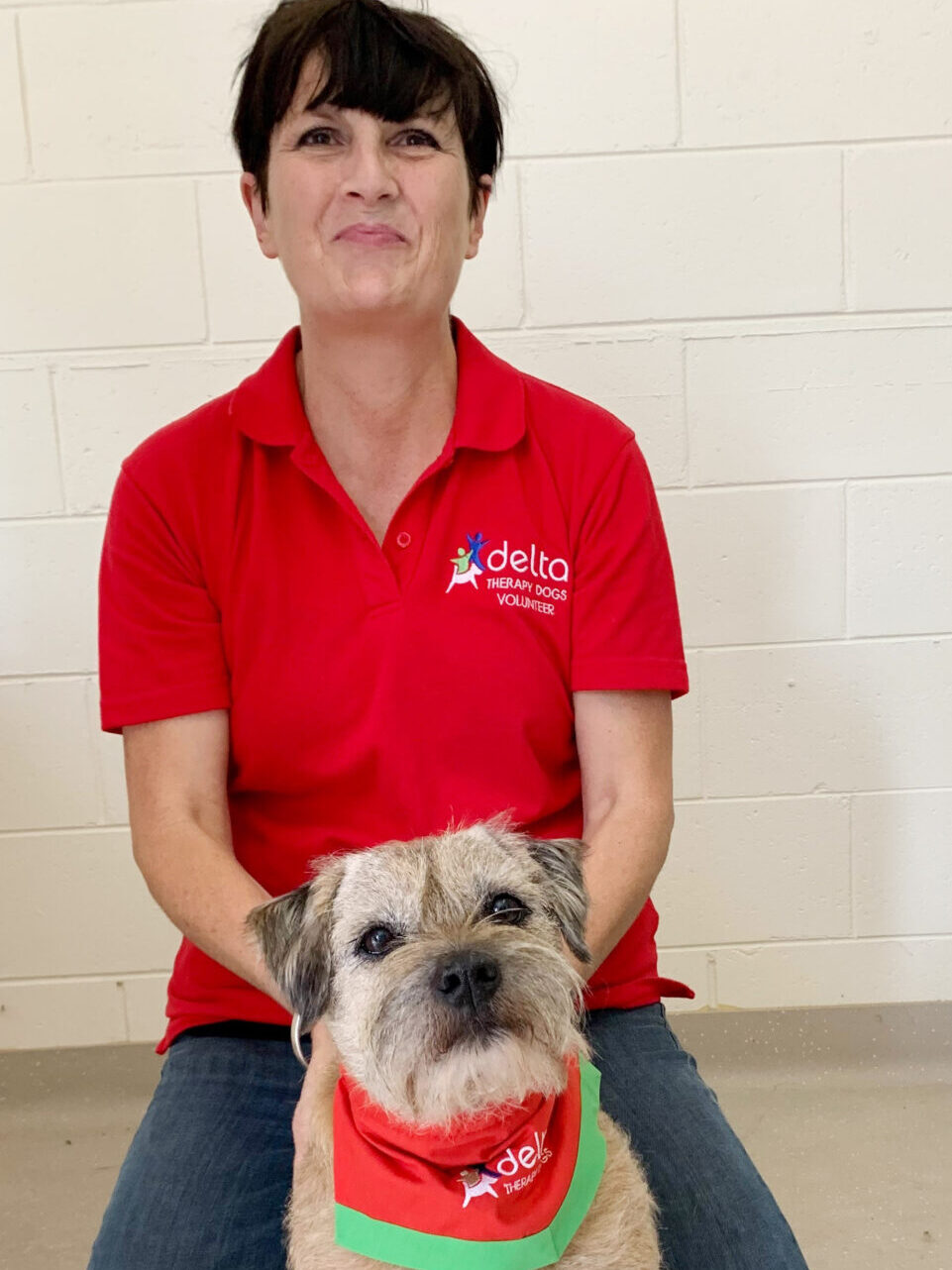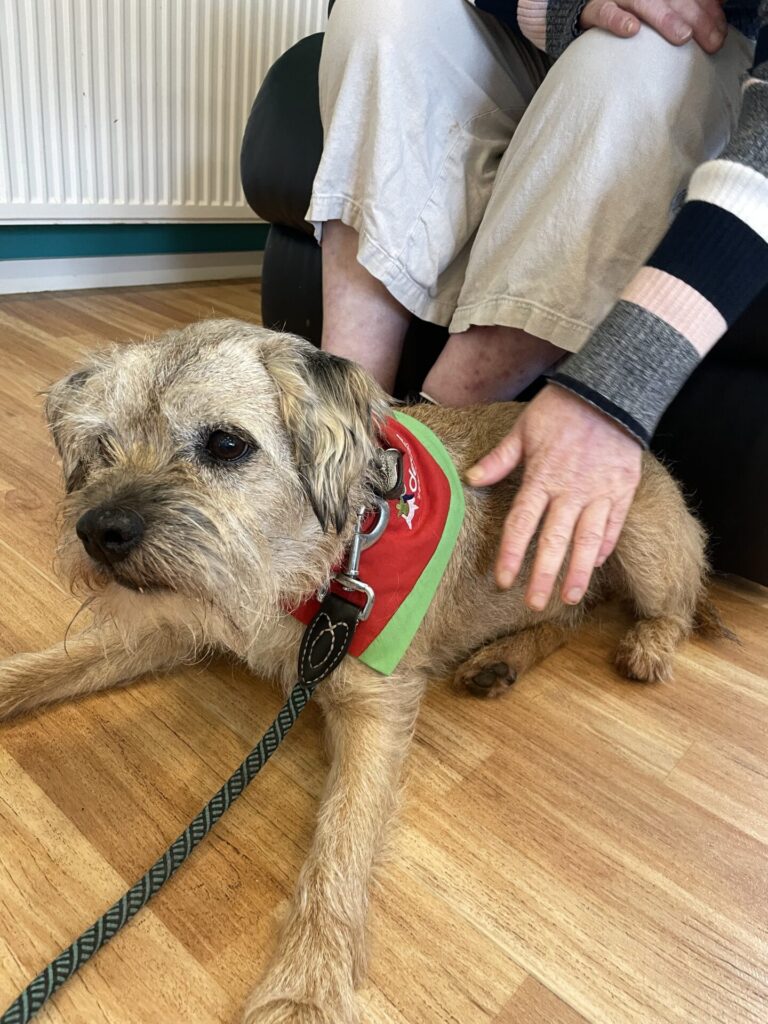Flexibility is key to my volunteering with Delta Therapy Dogs

This story is part of our focus on 2024 National Volunteering Week. See our other stories: A sector at the crossroads: how volunteering needs to change and Corporate volunteering: from food packing to skill sharing.
Every second Saturday I drive to a beautiful woodland setting on the Mornington Peninsula with my dear pal Paddy, who also happens to be the best dog in the world. He is a very handsome and chilled border terrier, and together we are a Delta Therapy Dog Team. He is the superhero in this duo though and even has a cape.

Our current placement is with Focus Individualised Support Services. Focus provides supported accommodation services to people living with intellectual disabilities in six of their houses at Red Hill. Delta and the staff at Focus have gone out of their way to be flexible to accommodate my weekend availability, even though I sense logistics might be easier if I could attend during the week.
I work and have a young child with additional needs, so finding time to volunteer is quite a stretch, but I love doing it and value giving service to the community. It makes me feel good and it’s something I want to model for our son. Delta and Focus have been understanding of my circumstances and if I couldn’t volunteer on the weekend, I doubt I’d be able to continue.
Focus, with support from Delta, also make a big effort via communication with their teams to ensure Paddy’s well-being is a priority and we both have a positive experience. Perhaps due to the nature of the gig, many Delta volunteers are working-age with varied commitments, so the charity offers online training where possible and works hard to find suitable placements. Even with almost 1,000 volunteers, there are still many facilities waiting to be matched with their own therapy team, so being adaptable around volunteers’ busy lives is key.
Providing time with a furry friend to people who may not be in the position to have their own is important when we know the positive effects on mental health and well-being that interacting with a pet brings. The joy on the residents’ faces who love Paddy’s visits and wrap their arms around him is easy testament to that – and something I’d hate to miss.
